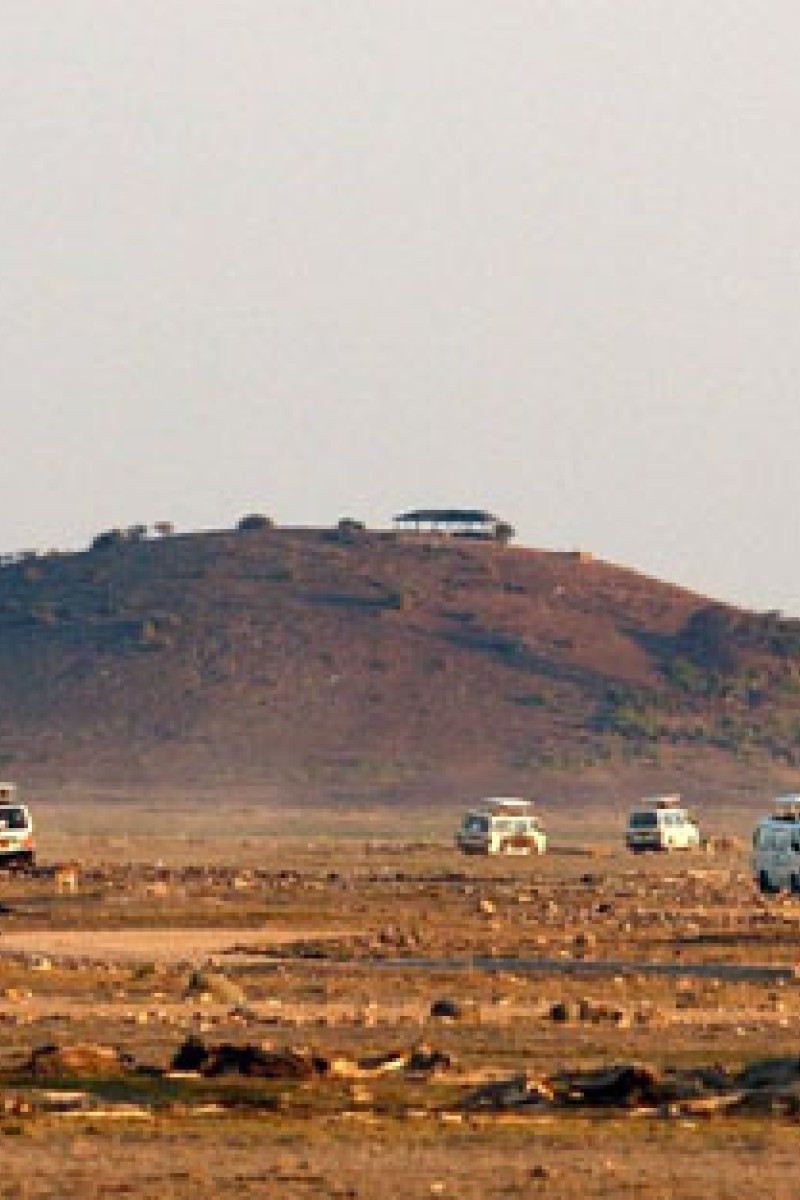 iii
iiiIt's wonderful to see animals in their natural habitat, but safaris can have a negative effect, writes Sung Yik-hei
Growing up in Hong Kong, we don't have many opportunities to get to know more about nature. I developed my interest in wildlife when I was a kindergarten student.
I watched documentaries with my dad and learned about hippos, lions and rhinos who were living on the other side of the earth. I dreamed about seeing these magnificent animals in the flesh one day. About 20 years later, my dream came true. I spent two weeks in Kenya last summer, along with a group of students from the University of Hong Kong's School of Biological Sciences. The trip was organised by the university's school of biological sciences and sponsored by the K11 art mall.
It was a truly inspiring adventure, and gave me a better understanding about the impact human activities have on the environment. Kenya is famous for safaris, yet eco-tourism may affect the animals' behaviour.
For me, the most memorable moment was seeing a leopard use safari vehicles as cover to ambush a deer. I was very happy to see the leopard but, at the same time, was shocked that the deadly predator had got so close to us.
The drivers tried their best to get as close to the animals as possible. Some of them even drove their vehicles off the road which was not allowed. I was disappointed.
Faced with intruders, wild animals could change their natural behaviour and this may affect their future survival.
The increasing number of tourists pose a serious threat to Kenya's abundant wildlife.
Kenya is undoubtedly one of the best destinations for nature lovers. To meet the rising demand, the authorities are building more tourist facilities in the country's wildlife parks. We learned that there has been a sharp decline in the number of certain animals, for example giraffes, over the past 15 years. The survey also revealed that this was probably caused by the booming eco-tourism industry.
I believe the authorities have to impose stricter controls on the development of tourist facilities in nature reserves. In addition, the number of tourists going on safaris should be restricted.
I talked to some locals during the trip, and most of them showed a deep appreciation of nature.
On the contrary, the majority of Hongkongers do not care about their environment. The reasons are obvious. We are isolated from nature and forget where we actually get our food and water. This also explains why conservation is not a popular topic among the public.
In fact, Hong Kong - despite its small size - has a wide range of birds, amphibians, reptiles and insects.
Sadly, wildlife in Hong Kong doesn't attract much attention, and is often sacrificed for development.
Many animal species around the world are facing extinction because of human activities. Raising public awareness is very important for the continued survival of all species on earth.
Sung is a PhD candidate at the School of Biological Sciences, University of Hong Kong
More pictures taken by the students
<!--//--><![CDATA[// ><!-- PDRTJS_settings_1833628 = { "id" : "1833628", "unique_id" : "default", "title" : "", "permalink" : "" }; //--><!]]>
